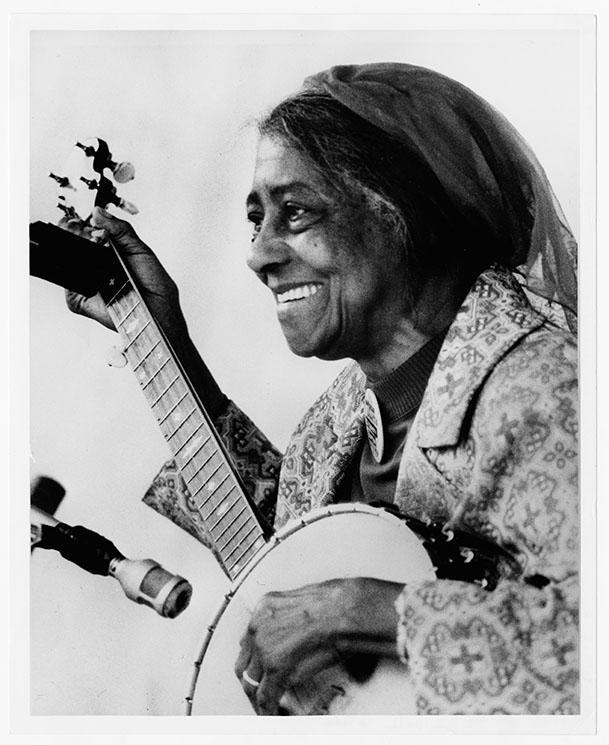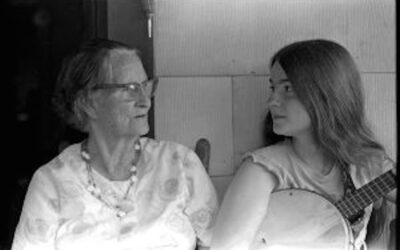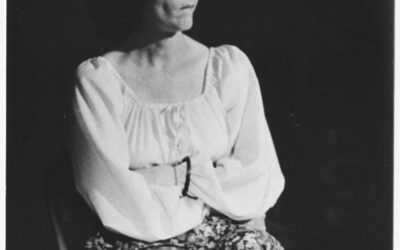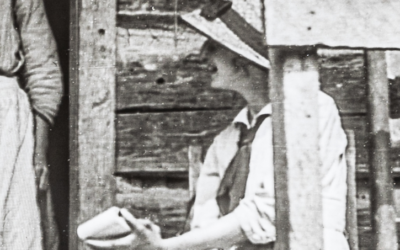Musician Elizabeth (Libba) Cotten taught herself to play left-handed and upside down, using the index finger of her left hand to keep a steady bass rhythm and her thumb to play the syncopated melodies. Her repertoire – “built…on a firm foundation of late 19th and early 20th century African-American instrumental traditions” – included blues, ragtime, and original compositions on guitar and banjo, and she composed “Freight Train,” her best known song, at the age of 12. Additional original songs included “Shake Sugaree,” “When I’m Gone,” and “Babe, It Ain’t No Lie.”
Elizabeth married at age 15, and she gave up music to raise a family and after a deacon in her church told her that playing music was courting the devil. While working for the Seeger family later in her 40s, she picked up one of their guitars and once again started playing. They encouraged her to keep playing, and she later fell into an accidental career, touring with Mike Seeger who also helped to connect her to music lovers. Elizabeth also became a popular performer at various festivals during the folk revival of the 1960s, and she toured with the Southern Folk Cultural Revival Project, an interracial group of artists that included other “women in old-time music” like Ola Belle Reed, Alice Gerrard, Hazel Dickens, Etta Baker, and Lily May Ledford.
She was named a National Heritage Fellow by the National Endowment for the Arts in 1984, and in 1985 at the age of 90, she won a Grammy award for “Best Traditional Folk Recording.” She was also included in Brian Lanker’s 1989 book I Dream a World: Portraits of Black Women Who Changed America. In 2022 Elizabeth was inducted into the Rock & Roll Hall of Fame as an “early influencer.” Today Elizabeth is revered as an innovative fingerpicking guitarist and songwriter, and her “Cotten style” has influenced numerous artists that followed her.




